At the Drinks 100 Australia awards this past week, Jenna Hemsworth was awarded the Person of the Year presented by Jack Daniel’s Bonded, a recognition of the big year she’s had and the work she’s done as co-founder of Sorry, Not Sorry collective.
In honour of Jenna’s win, here’s our in depth interview with Jenna from November last year — the first cover interview of Boothby magazine in print.
Jenna Hemsworth is a bartender. A pathfinder. The first female Bartender of the Year. A drink creator. An entrepeneur. And she’s not afraid to speak up. Jenna talks to Sam Bygrave about the fallout from Swillhouse, working for herself, making change for good, and inspring the next generation. Because
Jenna Hemsworth is a leader.
JENNA HEMSWORTH IS NO STRANGER TO THE BARTENDING SPOTLIGHT. Over the last 15 years, she has worked at some of the most high profile bars there are, she’s won big national cocktail competitions like Bacardi Legacy, and in 2018 was the first female to win the title of Bartender of the Year.
But August 2024 put a new kind of spotlight on Jenna, with the Sydney Morning Herald investigation into allegations of rape, sexual harassment, and sexual assault in Sydney’s Swillhouse group, owners of The Baxter Inn and Restaurant Hubert among others. Jenna was one of two women who went on the record alleging that she too was sexually assaulted while working at the group.
So it has been another big year for the award-winning bartender. Added to that media spotlight is that Jenna this year struck out on her own, working for herself — her business is called Real Good Drinks — consulting with brands and bars and setting her own agenda.
Below, she talks to Boothby editor Sam Bygrave about the year, and what comes next.
Sam Bygrave: How are you doing after what has been quite a time?
Jenna Hemsworth: Better now. It was a whirlwind month. Obviously there was a lot of stuff going on behind the scenes with reporters and other legal things, I was given a lot of information that I didn’t have before about what my rights are — you grow up in hospitality thinking that this is the norm and this is something that’s inevitable rather than something that shouldn’t happen. So there was a lot of guilt and I just took that blame myself because... the harm’s on me. You just pick yourself up and you move along because that’s what you do. You’re in the industry where you give 100 percent of yourself 100 percent of the time. It’s almost feels criminal to ask for the bare minimum. It almost feels criminal to go, hey, no, I’m not doing so good. That was a pretty shitty thing that happened.
Sorry, we just got straight into it.
No, 100 percent — I came prepared. I had some people ask me, what’s the point? What do you want to get out of this? This happened such a long time ago. What I hope is that a little bit of change happens. I had put my issues, what I thought, to rest. But reliving it, I found a great sense of empowerment of going, no, I can change my narrative. It’s not me. Everyone knows. This is the worst kept secret in hospitality. It’s the fact that everyone either claims ignorance or is completely oblivious to that fact because they’re all our mates and we’re all having a good time. A lot of women don’t really want to make a fuss and make waves. It’s that I’m at the top of my career at that point and you don’t want to make waves, and [have people] go, she’s a troublemaker.
You also don’t want that to be what you’re known for.
No, I want to be known for being a fucking good bartender.
You are.
I am. I don’t want to be known for that girl. And then there’s the, my god I’m so sorry that happened to you. And I’m like, don’t be sorry — be angry. Change it. Let’s go, okay, these things have happened. These things probably will continue to happen in some capacity. But what can we do to make it a safer place for girls and boys and everyone in that industry so they don’t have to go to work and feel scared?
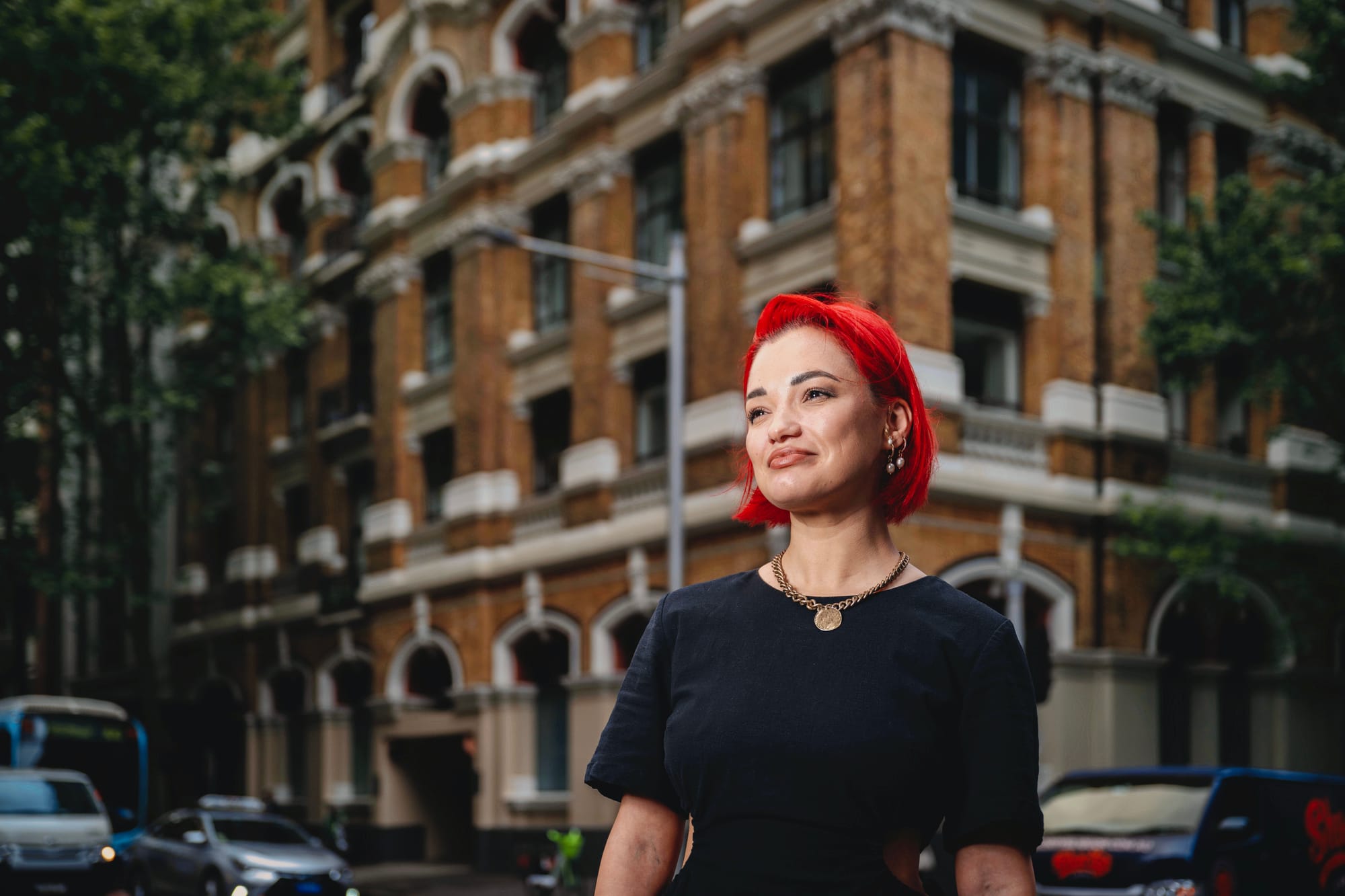
Which is unforgivable, right?
It’s ridiculous.
Yeah, like I’ve never had that, right? I’ve never experienced that. It’s not something I ever experienced.
A lot of women don’t want to speak about it because they feel scared to speak about it, because men in these positions of influence and power, they have the capacity to make or break a career.
That’s something that is no longer a concern of mine because I really couldn’t care less. And I came to the terms with if my position in this industry had to end or change, if people didn’t want to hire me because of these things, I can sleep so well at night knowing that I’ve done my part. I’ve done more than my part. I am proud of myself knowing that there are some real steps that are being taken now in legal terms, in the government, that there are some real actions that are being taken to help those vulnerable people that come straight out of high school, you don’t know what’s acceptable.
You’re a kid.
You’re also told from day one that you’re a rockstar, you’re one of the boys, you’re celebrated for that kind of destructive behaviour, which makes it a lot easier to manipulate someone in the future. I wish I had someone to look to for guidance when I was starting out because there wasn’t that representation, and there wasn’t that sense that I can have the option to speak up or I can have that protection if I am ever in a vulnerable position.
I got what I needed out of this, and that is protection for all the amazing people that are coming up in the industry. Because there’s so many amazing women right now. I’m overwhelmed. I’m obsessed with every single one of them. And the fact that some of them feel safer to share their stories, and the fact that so many men as well have not been deafeningly silent anymore — it shouldn’t be on women to do that emotional labour to make the world a better place because the fact is the perpetrators are, 99 out of 100 times, a man. So the fact that some men are using their voices to speak up — I’m not going to give you a medal for it, because that’s what you should have been doing in the first place — but it is really great to see that they are using their voice to help the people that need a little bit of help.
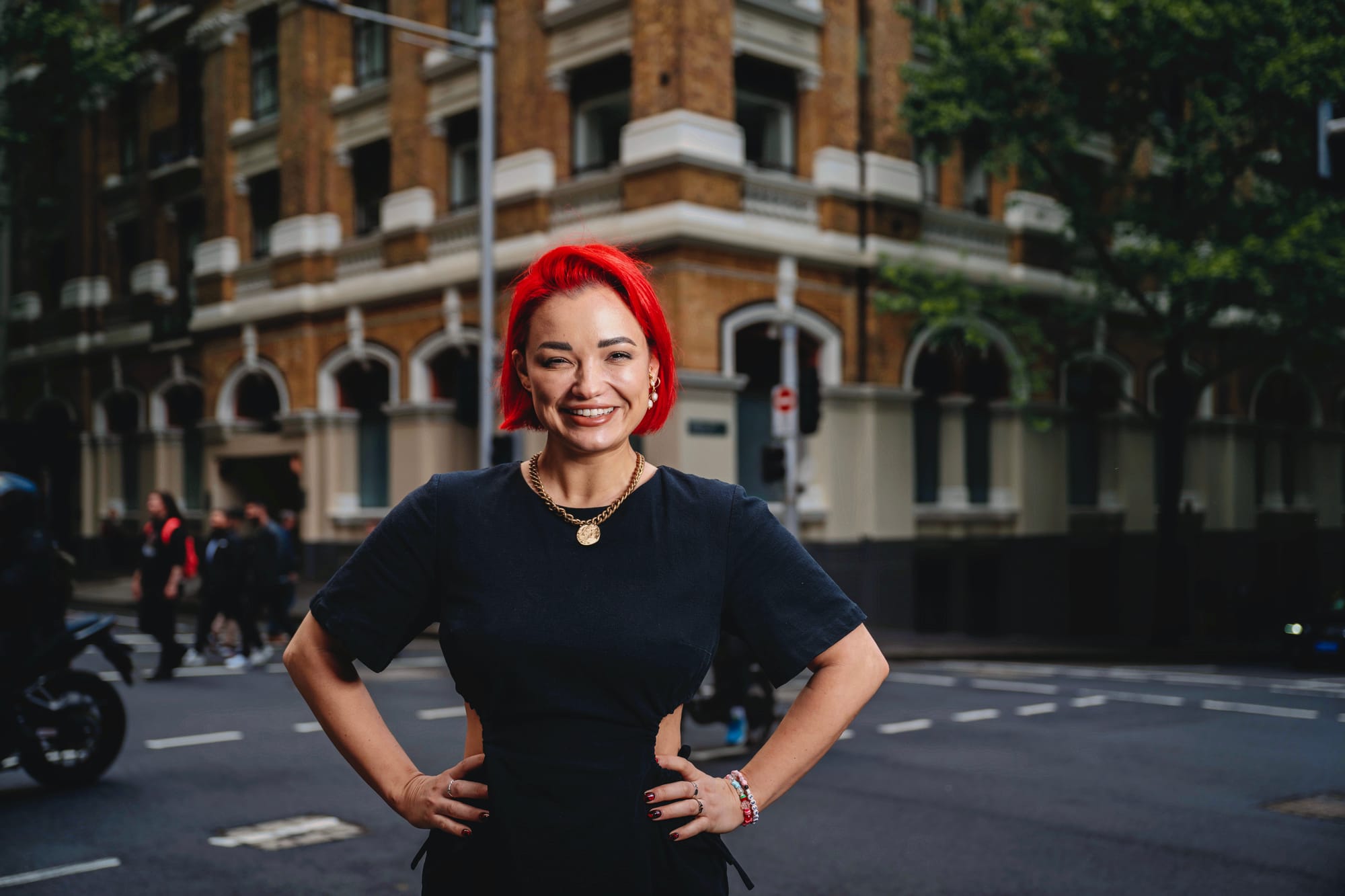
You were in this Joseph Cartron cocktail competition up in Brisbane.
Hell yeah.
You’ve had some time off competitions. Why did you decide to do it again?
I wanted a free trip to Brisbane. I mean, there was a bit more to that. I can joke around about it, but I really wanted to do it because it was something that interested me. And there’s always those thoughts of, do I still have it? Do I still want to do these things? I enjoyed it very much but I don’t have that same passion of presenting in competitions as I used to. I feel like I’ve done what I had to do in that scene and that’s only one facet of bartending.
A lot of what propelled me to do it in the first place was that kind of desire to be recognised and go, I can do this.
Do you think that’s a problem, that you’ve got to do comps to be recognised in that way?
It was instrumental to my success at least. In my opinion it was necessary for me. [But] it’s not the case anymore because there are so many other avenues that you can pursue to be successful, whatever that means to you.
You have won a lot of cocktail competitions, right? You’ve won some big ones too. Bacardi Legacy probably being the biggest brand one and Bartender of the Year — the first female to win Bartender of the Year.
I also lost Bartender of the Year seven times as well.
Seven times?
Yeah. I made the Top 8 maybe four or five times. It is just pure stubbornness. It literally was the fact that I was like, this is not going to beat me. I’m going to do this.
And you won the Australian final of Bacardi Legacy that year?
Yep, same year. It’s probably my favourite competition I’ve been a part of, because of the fact that it wasn’t just about the drink. The amount that Bacardi gave me in terms of developing myself as a brand and learning how to market myself, and get a bit of more longevity in a career that otherwise might be a 10 or 15 year stint. It got me to look beyond that next step as to how I can do more. Changed my perspective on the industry.
Coming back from those experiences of big wins like that, how did you see your career going from there? Where are you today?
To be a little bit honest, I thought it would continue in that trajectory. You get to a point where you go, okay, now I’m on a global stage. That’s a whole new level. Australia’s got one of the best scenes in the world, but it’s so far away. It’s really not something that you can be like, we’ll fly so and so from England to France. It’s a much bigger investment to support someone and champion someone from so far away.
So, I reach a new level, I feel like this could be my time to take on a global outlook.
And then Covid.
Yes. I ended up unemployed. I ended up flat broke for a good two years with no work and literally doing, you know, Airtasker tasks to pay rent. There was such a time of uncertainty if we’d ever have a job again. It’s dramatic to say I’ll never have a job again, but at that time, it was like, you don’t know what is gonna happen. What did I do for the last 10 years except build myself as a brand, get to a really great place where I could support myself on what I love doing, and then that’s just taken away from me. That was a very scary time. I feel like we’re still coming back from it, with, my friends that have got bars who struggle to get people through the door, keeping the lights on.
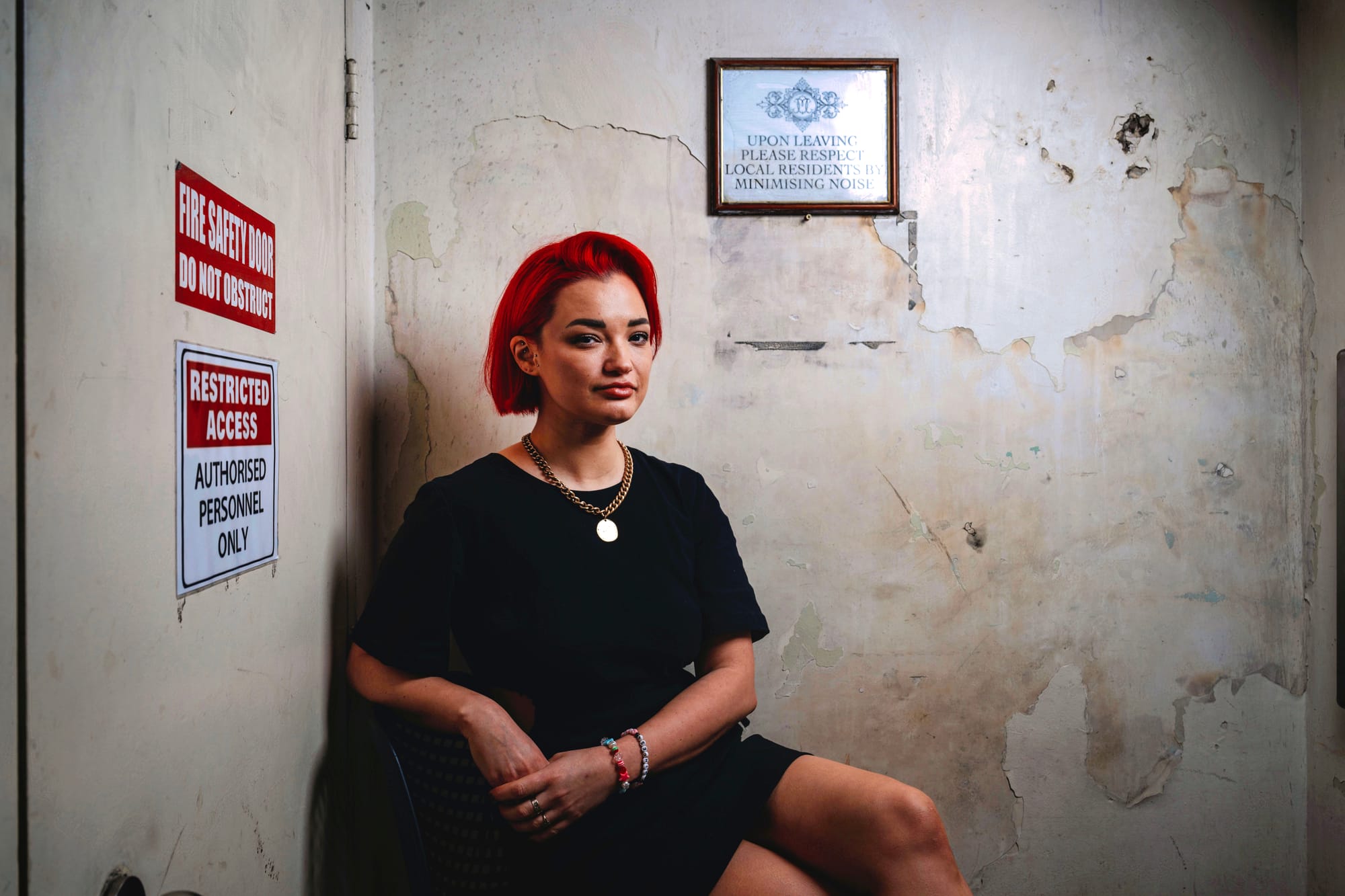
Patronage in the city hasn’t fully recovered. Before the pandemic, Sydney was on the verge of being a seven night a week city. And that’s gone.
And we’ve got people in other states like Melbourne, even worse. To have that tenacity to come back as a bartender, a bar owner, anyone in the hospitality profession and to go, no, I’m going to stick this out because this is what I love — it shows great determination and that’s something that I feel now looking back on it, as maybe giving me more of a greater respect for those hard times.
It was that chance where we could take a step back from the industry, take a step back from those 50 hour work weeks, you know, drinking every night, and really ask how can we do this as a career, not a job? How can we make this something that’s a sustainable industry? Where we can not celebrate killing ourselves for a dollar or killing ourselves for our health?
It’s very intoxicating, literally. But it can be fun. It’s also distracting.
It can distract you from what you really want to get done.
Yeah. If you do too much of that, and it can be very dazzling where it’s a party every night. But again, the party’s got to finish at some point and you’ve got to clean up after it.
That’s a good quote.
I’m full of them. It’s really great to see some of the younger professionals coming up and going, no, no, no, I will have a work-life balance.
See, I don’t think that work life balance actually exists. I reckon if you want to get anywhere you still have to flog your guts.
100 percent.
And then when you get there, then you can get work-life balance.
It’s just good to see people taking more care of themselves, embracing more like a moderate lifestyle instead of the party every day situation.
Yes, I think that is good.
And just really putting a concerted effort into making sure that they’re not burning themselves out. Which is such a big issue in this industry.
It’s also easier said than done.
Yeah, I’m burnt as fuck right now. There’s a point where you do push yourself, but again it’s really good to see a lot of people are more aware of the signs and they’re helping their friends out when they might need a little bit of an extra helping hand.
The old days it would just be...
Have a shot, move on.
Yeah, but you’d know you were burnt out only when you were used up completely.
When you’re on the floor crying.
So what is it that Jenna Hemsworth is doing these days?
She makes real good drinks.
Well, true. How do you think of your career at the moment?
That’s still something that I don’t have an answer for because I don’t have a template to put my career on.
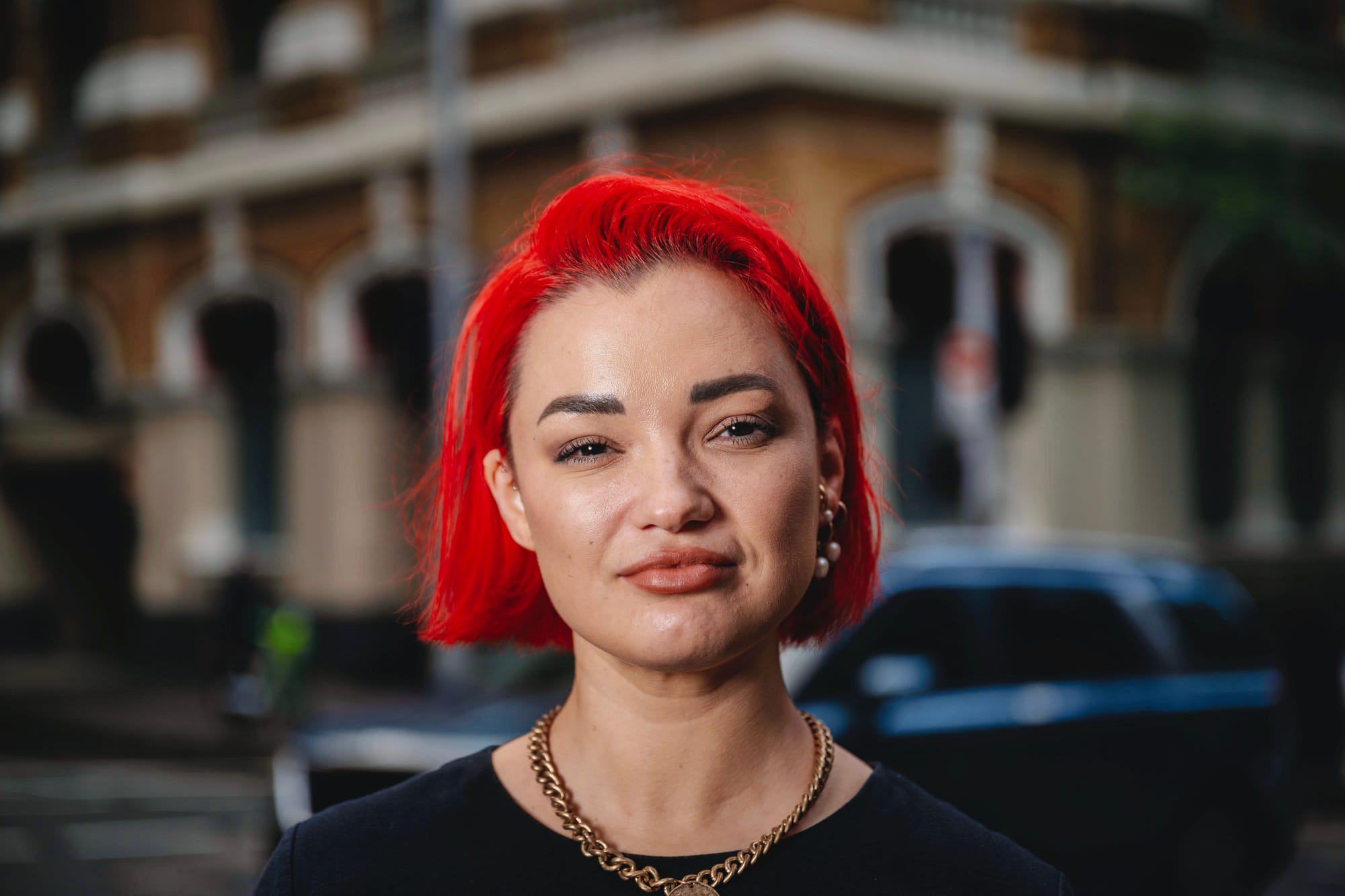
How do describe what you do to other people?
There does tend to be a gap in a market now where a lot of people don’t have the resources to either have a full-time events person, a full-time consultant, a full-time so-and-so for advice on certain aspects in the hospitality industry. And I have the luxury and the privilege of having such a long career. I’m old.
I have the privilege of having had such a multifaceted career, but I do have some insights in different aspects of hospitality that I can pass on and I can also make a living giving people insights on how to make a real good drink, how to put an event together — it’s taking the labour off someone else. Hopefully it’s gonna become a little bit more than what you would call a consultant, because I don’t know what that word means.
Yeah, well it’s pretty loosely defined.
It’s pretty shit to be honest, like those who can’t bartend consult. But I’m trying to make it something that’s more of a viable part of the industry.
Do you find the hours work better for you?
It’s very scary actually because for six weeks you could be working ridiculous hours — just as we spoke about work-life balance, don’t work for yourself if you want that because it’s not going to happen.
You have to be very diligent with not only planning for your day, but planning for the six months in advance. Otherwise you have to be very good with your timing. You have to be very good with your budgeting because you’re not getting a regular paycheck. There’s going to be lean times and there’s going to be times where you feel like you’ve just got it sorted, but you never really get it sorted. It’s just one step at a time. And it’s always good to have plan A, B, C, D, E.
Why do you do that as opposed to getting a job as a bar manager or head bartender or general manager? What is it about consultancy that attracts you?
I feel like with all due respect so many people do it wrong. So many people just are doing it to either get rich which is not going to happen. It’s very attractive and you can set your own price, can set your own hours. But it’s definitely not a get rich quick scheme.
It’s doing it because you’ve noticed a niche or a hole in the market that your certain skill set might be able to fit. I mean, there’s other people in this industry that are really good at back of house, they’re good at management, they’re good at dealing with other people. I’m not, I’m terrible at that. Those are not my strengths.
But whatever my really weird and niche skill set is, it really translates to that style of work. It’s so far so good.
Do you like working for yourself?
Yeah, I’m the best boss ever.
Would you want to work for someone else again?
Can you control the wild stallion? For the right person, yeah. Call me. It’s not out of the question. I do love working with like-minded people. I do love working with people that challenge me to reach that next level or to fill those knowledge gaps that I have. But the power that comes from working for yourself is, it’s awesome. It’s really fun because you get to choose exactly how you want to present yourself in the industry and what you want to stand for.
Yeah.
So it does give me the freedoms to do what I want.
Did you need to have all the experiences that you had, the good and the bad, throughout your career so far to get to this point? Would Jenna 10 years ago have been able to say ‘I’m a consultant.’
Jenna 10 years ago was a consultant and she got ripped the fuck off.
You can’t beat experience. You can’t fake that and you can’t cheat it. You have to experience those things. So through all the trauma and the terrible times and the great times, it becomes more of a wealth of experience that you can pass on, which you can’t fake.
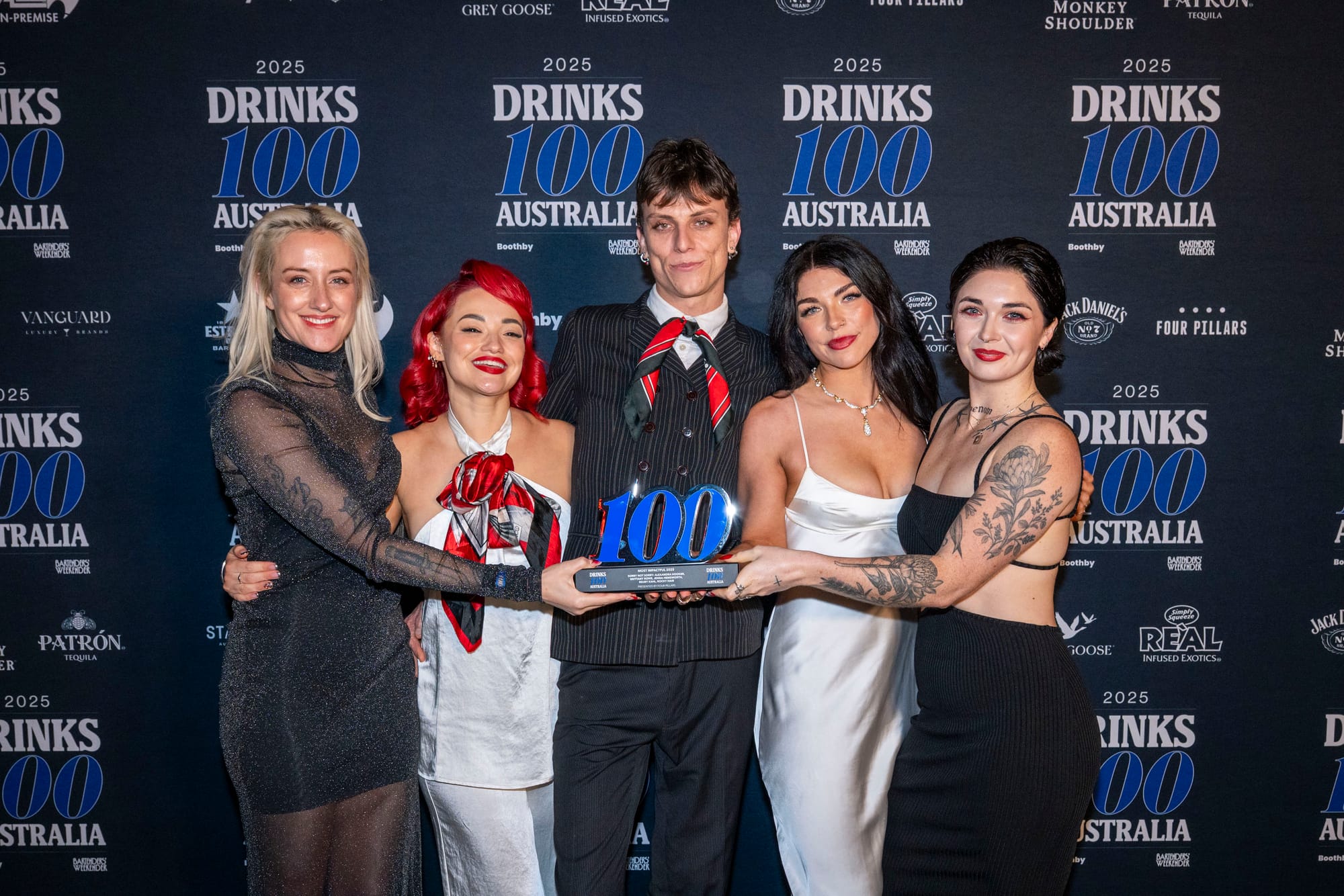
I mean, generally the more experience you have the more interesting you are as a person and the more interesting ideas I think you have, right?
And the weird shit that you can do.
What are you excited about for the future of hospitality and also for your career? Like, we’re in a pretty... It’s been a rough moment obviously for you, but the industry really felt this last few months in a way I haven’t seen before.
I’m still grappling with the effect that it’s had because I haven’t dealt with it personally myself, but I feel like my future — I’ve never felt so confident in saying that this is what I’m here to do. It’s something more than making drinks now. It’s about giving people a better quality of life in this industry, where you give everything, and sometimes get nothing back.
I do feel like the success that you’ve had is great because it does show other people that if you’re female you can have that success. It’s not just the same old guy in the three-piece suit with no socks, right? And actually we’re really bored of that by now.
Yeah, and it’s that success in hospitality doesn’t just look like that. And it doesn’t just look like your competition bartender, it doesn’t just look like your bar manager, it doesn’t just look like XYZ. And the diversity and just the weird, interesting freaks that we are — none of us were the cool kids in school. We were all in that other category.
We don’t really belong anywhere else.
But we belong doing this. And it’s really great to see more representation in different stars of success in hospitality. So hopefully I can do that in a way that makes some real change and makes the industry a stronger and safer place, and hopefully I still get to do really cool stuff with events and drinks like I love doing.
This story appeared in the first issue of Boothby magazine in November 2024. To get the next year of issues to your door, sign up here. Your support of Boothby means a lot!









